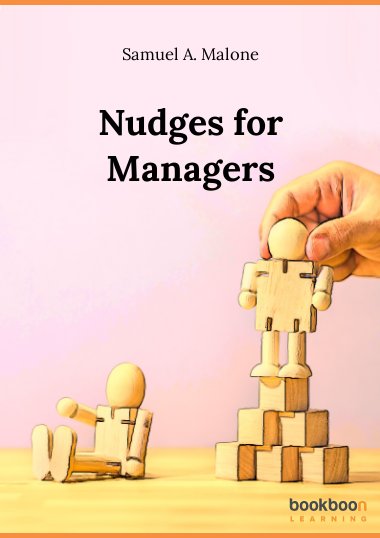Nudges have an important place in the knowledge base and toolbox of managers. Nudging is a behavioural science theory based on the concept that instead of a bold complicated move to influence people to act differently, you should make small, simple, gentle, economically neutral changes instead. It is designed to increase the receptivity, efficiency, effectiveness, productivity, welfare, and motivation of employees. It is popular in government, business and charities. Currently, because the theory is relatively new, most management texts do not cover the topic in practical business situations.
About the Author
Samuel A Malone is a self-employed training consultant, lecturer and author. He is the author of 21 books published in Ireland, the UK and abroad on learning, personal development, study skills and business management. Some of his books have gone into foreign translations and second editions. He has an M.Ed. with distinction (in training and development) from the University of Sheffield and is a qualified Chartered Management Accountant (ACMA), Chartered Global Management Accountant (CGMA) and a Chartered Secretary (ACIS). He is a fellow of the Irish Institute of Training and Development (FIITD).

